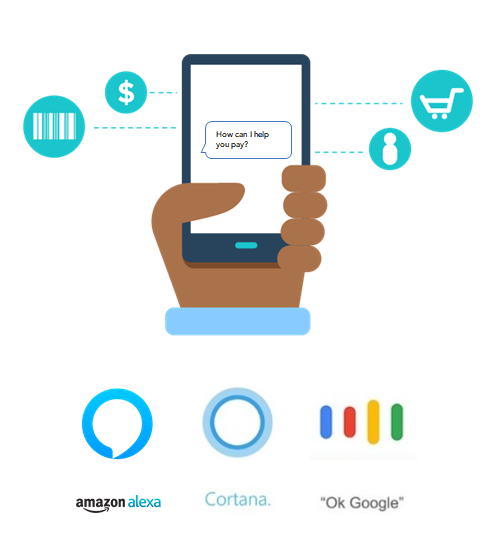What is Conversational Commerce?
Conversational commerce is a form of marketing and sales that adapted to the current usage of messaging apps. It offers unique benefits and businesses that won’t use it will slowly fall behind. Learn why and how to implement it in this article.

What do you do when you’re in a shop and have a question? You ask the shop assistant. She usually has a few suggestions and helps you find exactly what you want.
Conversational commerce is moving this everyday human experience into the online world.
It utilizes chat, messaging or voice interfaces to enable you to interact with people, brands, services and bots.
At the same time, conversational commerce is also an unparalleled opportunity for a brand to build personal relationships with customers, to get to know them and drive brand loyalty.
Due to conversational commerce, brands can become more than just businesses to their customers. They can almost feel like friends.
3 Forms of Conversational Commerce
Conversational commerce comes in three forms:
• Messaging

Facebook Messenger, WhatsApp and Apple Business Chat, among others, give businesses new options to connect, respond, personalize offers and close sales with their customers. Especially now, when new business versions of messaging apps are rolling out all around the globe. You can read about Pros and Cons of the main business chat solutions in our previous article.
Since Facebook Messenger introduced bots, more than 34.000 businesses have launched chatbots on the platform! Additionally nearly 20 million pages aren’t using bots, but are still using Messenger to communicate. Those numbers are constantly growing and businesses that do not adopt conversational commerce on social media will soon be left behind.
Since Facebook Messenger introduced bots, more then more than 34.000 businesses have launched chatbots on the platform! Additionally nearly 20 million pages aren’t using bots, but are still using Messenger to communicate. Those numbers are constantly growing and businesses that do not adopt conversational commerce on social media will soon be left behind.
• Chatbots

These bots have become a major part of customer service on a lot of websites. They are powered by AI and can answer common questions, share instructions, take orders, offer promotions and much more.
There are a lot of applications on the market that make creating a chat bot really simple. ChatFuel even claims you can launch a bot with their help in just 7 minutes!
Bots will help if you don’t have time to respond to each and every customer request. However, they are also helpful if you have a customer service as they allow your agents to have more time for urgent and complicated matters.
Bots can also learn over time and become more human-felling. We are sure that in the near future, we won’t be able to tell a bot apart form an actual agent in the initial stages of the conversation.
• Voice-based User Interfaces

More and more people use voice search every day. Virtual assistants like Siri, Alexa and Google Assistant can help us with anything from the weather forecast to actual shopping. Voice assistants are limited to bigger languages (e.g. English), but once you’re using them it feels as close to actual conversation as it gets.
What Are the Unique Benefits of Conversational Commerce
Your customers are already using messaging apps and once they get in touch with you, it becomes incredibly easy to communicate with your brand. They don’t need to install any additional apps or open any software they don’t normally use.
Not just that, but conversational commerce becomes a part of the most personalized customer experience available and we often forget that. Our conversations automatically rearrange themselves according to our behavior, and the bots that you were talking to on desktop are right there when you pick up on mobile.
Think about it. We don’t even notice it even more, but if you’d look at someone else’s Messenger or WhatsApp inbox it seems totally foreign. Yet your own ever-changing inbox is the most natural thing. Conversational commerce grants your business access into this close personal circle.
With messaging apps already installed on most phones, there are zero barriers for adoption, and minimal risk for the user (i.e. malware, etc). This also results in faster setup time.
Setting up conversational commerce foundations is faster and cheaper than creating an app. You can take a bot template, tweak it, and launch it — over a weekend.
To make things even more convenient, more and more messaging apps are adding their own payment solutions. They will make your products or services easier to purchase, as customers won’t need to leave the conversation in order to pay. You can read more about such payment solutions here.
The tone of the conversation will become increasingly important as it can very effectively convey your brand’s personality and differentiates your brand. If the customer enjoys it, he will be back for more.
Another major advantage of conversational commerce is that you can track all interactions and engagements. This means that the longer the conversation thread persists, the easier it will be to anticipate user’s specific needs and come up with effective personalized offers. You will be able to get to know your customers on a whole new level and that can easily lead to more sales. If you are interested in creating effective personal offers, you can read all about it here and here.
The retail landscape is changing by the minute, and if you’re in ecommerce, being aware of the latest trends gives you a huge advantage. Conversational commerce is definitely one of them, and with all new business expansions of messaging apps, it looks like it’s here to stay. Now that you know what conversational commerce is all about, it’s up to you to take advantage of this huge opportunity. ;)
